
I'LL NEVER FORGET WHATSISNAME:
A TRIBUTE TO CHARACTER ACTORS

KEVIN MCCARTHY, PAGE 3
MIRAGE (1965)
I wasn't around for the 40's, 50's and 60's, but based on the kind of movies that were getting released the biggest post-war concern in America must have been amnesia. Specifically, amnesia induced artificially by some overreaching government or corporation. In the wake of the Cold War and The Manchurian Candidate, paranoia over mind-reprogramming was apparently box office gold based on the movies hitting the big screen in 1965 alone: 36 Hours, in which James Garner is brainwashed by Nazis to make him believe the war is over so he'll divulge Allied plans; Blindfold, with Rock Hudson as a shrink trying to save his patient from a remote base where the government is playing with his brain; The Third Day, featuring an amnesiac George Peppard trying to piece together the details of a car accident that brought him to his forgetful fugue; and Mirage, which opens with Gregory Peck slowly realizing he's missing large chunks of his memory. Most of these films are largely forgotten today (ha ha get it?) but must have appealed to the Christopher Nolans and Duncan Joneses of the time.
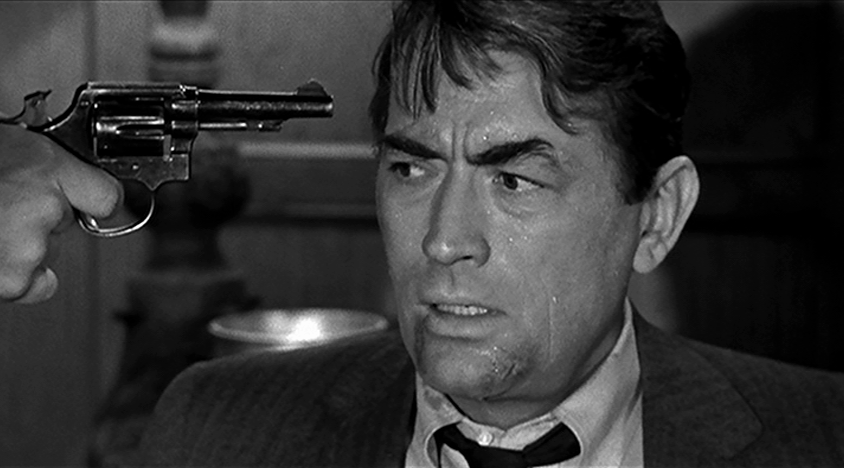
A big fan of amnesia-based thrillers was Cornell Woolrich, himself a reclusive, alcoholic amputee prone to fits of paranoia. Woolrich adaptations Street of Chance (1942), Phantom Lady (1944), The Chase (1946), Black Angel (1946) and No Man of Her Own (1950) all featured some form of the recurring noir theme of memory loss. Amnesia is most prominent to the story of Fear in the Night (1947), from Woolrich's short "And So to Death," and its remake Nightmare (1956), filmed by the same director - Maxwell Shane - and starring Kevin McCarthy. I say "starring," even though technically Edward G. Robinson got top billing, because it's probably the closest thing to a leading role in a feature film for McCarthy other than the two he did for Siegel. He plays a New Orleans big band clarinettist racked with horrible dreams where he sees himself killing somebody among a maze of mirrors. Actually the plot is very similar to Woolrich's novel The Black Curtain, upon which Street of Chance was based, and the movie is undeniably Hitchcock-minded (Woolrich's story "It Had to Be Murder" was reworked as Rear Window; I guess people these days use "Hitchcockian" because it's catchier and more identifiable than "Woolrichian.") The dream symbolism, Big Twist involving hypnotism, and amnesia-based plot specifically reflect Spellbound - but McCarthy's rampant paranoia and extreme sweaty close-ups not only bring to mind Invasion, released in the same year, but make for a more intimate, less coldly-observed character portrait than Hitchcock's stagnant, show-offy visualization of the Ben Hecht material. I saw it a few years ago on TCM and wanted to watch it again and write about it, but couldn't track down a copy. Instead I turned to Mirage, another Hitchcockian/Woolrichian back-against-the-wall/paranoid thriller directed by Edward Dmytryk, starring Spellbound lead Gregory Peck as a cost accountant suffering from a bout of explosive amnesia.
The first fifteen or twenty minutes are extremely promising. The lights in the fictional Unidyne Building go out, plunging it into urban darkness. Information comes to a muddled Gregory Peck very slowly: he's an employee ready to punch out for the day when the power went out. A pretty girl in the stairwell is offended when he doesn't recognize her and disappears into the darkness. And a man has fallen to death off the top floor. These early events immediately reminded me of two duds I saw recently - John Erick Dowdle/M. Night Shyamalan's Devil (people trapped in an office building kicked off by somebody plunging from the top floor) and Brad Anderson's Vanishing on 7th Street (city-wide blackout followed coinciding with people disappearing) - but with much better storytelling. These fragments of information are presented to Peck at the same time as the audience, and all the same way, through the bizarre uneventfulness of a surreal dream. The girl mysteriously vanishes as abruptly as she arrived. Strangers on the sidewalk comment on the suicide - "If I had the guts to step out that window I'd have the guts to go on living!" - as the pavement is hosed off. The startling normalcy of these initial moments are kicked off by the first thing Peck sees as he stumbles out of his office into the dark hallway: Kevin MccCarthy's grinning face, illuminated by a flashlight.
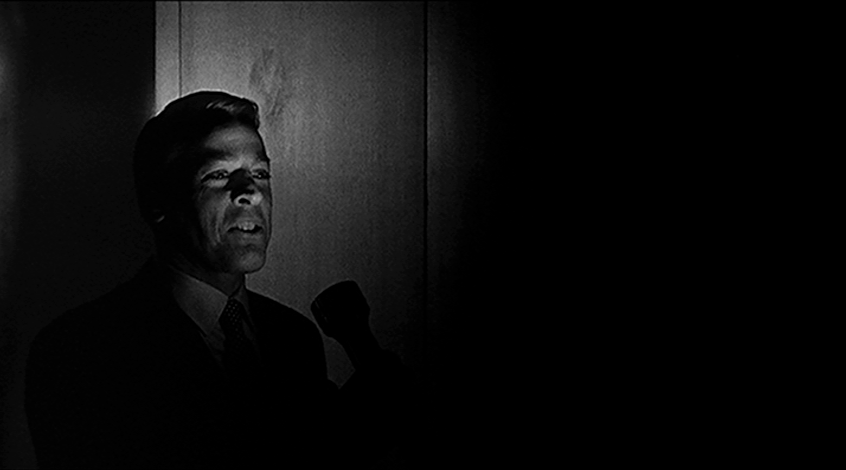
McCarthy is holding the flashlight on himself and on Peck, which makes for an interesting reversal of the scene in Body Snatchers where the shrink, already "turned" by the invaders, shines a flashlight in McCarthy's face in order to confound the situation and steer him clear of the developing conspiracy. In Mirage, he's part of the cabal rather than a target of it. Which makes this movie a fairly significant one in the evolution of McCarthy's character persona. Rather than trying to fight against them, he's now a card-carrying member of the oppressive majority, first pretending to be Peck's buddy then turning up at the end of a tunnel in Central Park to shout the ominous warning "There's nowhere to go!" At the same time, he's not quite the evil figurehead he'd become by the time of Innerspace and UHF, although appropriately that position is held by Leif Erickson, the very personification of autonomous authority since he played the alien-possessed father in Body Snatchers forerunner Invaders from Mars, as mysterious mastermind The Major. McCarthy is part of The Threat but, in a continuation of the Stranger on Horseback character, he's an absolute coward who can't make a move by himself. With the slippery name of Sylvester Josephson, he's not the casually sadistic bully he was in Stranger; he's a squeamish minion caught up in the excitement of being a slick corporate stooge who'll take the ride all the way as long as he doesn't have to get his hands dirty. He's willing to go along with the hostile takeover of Gregory Peck's brain, but he's more like a reluctant conspirator seduced by the promises of high living, like George "Buck" Flower in They Live. It makes him more interesting than the more generic villains, because at first he seems dangerous but after a while it's clear that he's as uncomfortable with all this mounting intrigue and sinister refrigerator re-stocking (more on that in a sec) as Peck. There's a great moment in the Central Park tunnel scene where hitman George Kennedy turns up on the other end, behind Peck, and shoots wildly at him. Peck runs past McCarthy and, as Kennedy gives chase, McCarthy snaps at him "You almost got me!" to which Kennedy bluntly responds "So?" Even hired goon Kennedy acknowledges that McCarthy is an expendable lackey who doesn't matter in the grand scheme of things.
Naturally, the more the movie reveals about McCarthy, The Major, the steady flow of character actor thugs like Kennedy's bespectacled hitman (he looks almost exactly like J.T. Walsh in this film) and why Peck can't seem to remember little details like his date of birth or whether he has any friends, the less interesting it becomes. But it treads water long enough before it surrenders to its shaggy dog leanings, mostly because of the stellar supporting cast. Jack Weston is a mug named Lester who shows up at Peck's apartment with a gun wanting to take him to Barbados (as soon as wrestling's over.) Walter Abel is a sulking old man killer-for-hire who appears briefly but has a weirdly profound death scene when he's hit by a car chasing Peck across the street. Walter Matthau pops up as a Dr. Pepper-sipping sleuth and walks off with the movie any time he exits the screen. Dmytryk was a talented journeyman director who manages to keep things weird for a while, with disorienting moments like Peck finding his refrigerator empty when he comes home, then completely filled next time he's there. Dmytryk is also a good copycat and sneaks in tiny echoes of Hitchcock imagery/humor such as Peck fantasizing the man's opening plunge as a watermelon that smashes on the pavement.
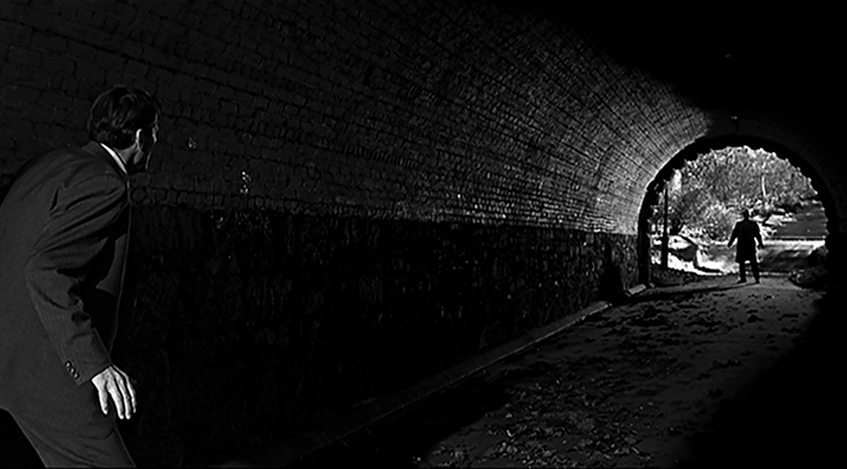
Another Hitchcock connection is Diane Baker, fresh from co-starring in Marnie, as Peck's love interest. Baker* has a striking screen presence which makes up for her unremarkable acting; it's easy to see why Jonathan Demme would rescue her from After School Special purgatory two decades later for a memorable appearance as the senator from Silence of the Lambs ("Take this thing back to Baltimore!") She's never not nice to look at on screen, but her character more or less represents why Mirage doesn't ultimately work. She knows what's happening to Peck, there's really no reason for her not to help him since she's rather loosely tied in with what The Major is up to, but she remains elusive every time they meet even though she's clearly unhappy with the escalating body count. How come she never says "Ok, here's what's going on?" She's like Dmytryk in that way: avoiding tying all these things together because it's more fun to let Peck run around making seemingly random connections between his memory loss and a book he notices in a store window, or the name of a street, than to have things actually pay off. And like Hitchcock, Dmytryk has little use for characters once he's established them within the makeup of the story: Matthau's P.I., a likeable audience surrogate trying to piece things together, is unceremoniously dispatched off-screen even though having him around gave the film an amiable flow and would have helped all the pieces fit a little neater. As it is, the Big Reveal (this isn't really a spoiler since I didn't quite understand it) is a cluster of new information and forced connections having to do with clean bombs that will put an end to nuclear radiation. It turns out Peck's amnesia - his memory is literally knocked back into him - was the result of being drugged after a confrontation with the head of the company which led to him accidentally knocking the guy out the window. But if that's the case, how did the villains manage to take advantage of that? It's never explained, for instance, why the bad guys would clean out Peck's fridge and then sneak back into the apartment to restock it. Why were they trying to kill Peck at the same time they were attempting to confuse him?
The convoluted climax is somewhat saved - at least, for McCarthy devotees - because of the big role he plays in it. Josephson lounges on The Major's leather couch as everything is laid out for Peck, but starts getting fidgety once Kennedy pulls a gun. The weapon ends up knocked to the ground in a struggle and Josephson picks it up, at which point the outcome is literally in his hands. Does he shoot Peck or The Major? This is clearly the first actual decision Josephson has ever had to make, and McCarthy does a great job registering the unease in his expression: everything has been a game to him at this point, and now it's jarringly real. The option to just sit back and go along with who's in charge is taken from him the second he became the one with the power. Amusingly, Peck manages to sway him to his side with some corporate sloganeering that makes him sound more like The Major: "Dammit, Josephson, commit! If you're not committed to anything, you're just taking up space!" This is exactly the method to sway a brown-nosing subordinate like Josephson, and Peck wins the day.
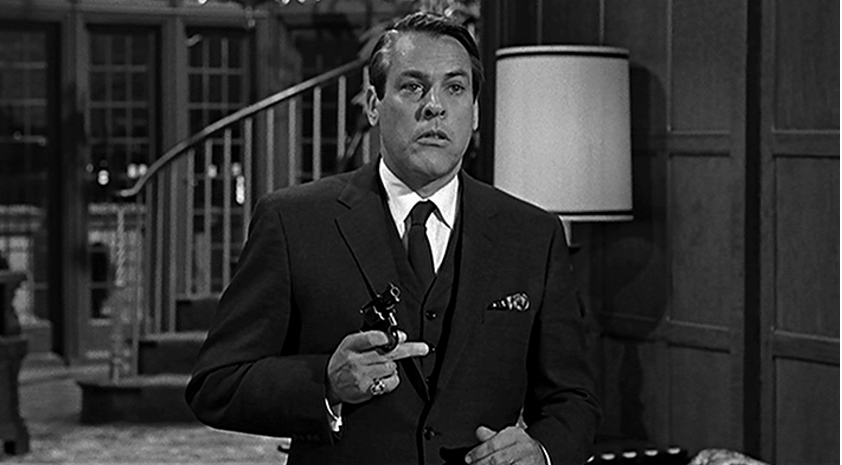
The script was written by Peter Stone, who penned Charade and The Taking of Pelham 123, from a Howard Fast novel called Fallen Angel. I hate having to keep bringing up Dmytryk's political background on this site, but I would be curious to know what Fast - who spent three months in prison after refusing to name names to the House Committee on Un-American Activities - thought of the director, famous as the member of the Hollywood Ten who ultimately cracked and decided to sell out his friends and co-workers after all. (Incidentally, Dmytryk was the director of Raintree Country, the film Montgomery Clift was starring in when he got into the famous car accident witnessed by McCarthy.) Like Charade, Mirage is a movie that constantly feels like it's functioning on a higher level even when it's not: stylish and smart, it still can't quite figure out how to make any sense whatsoever. Dmytryk does a good job balancing the normal and the surreal, contrasting disjointed memory to the familiar geography of several great New York locations, but isn't able to maintain the genuinely disorienting tone of the first reel.
The film was remade a mere three years later as Jigsaw, in which Bradford Dillman's memory loss is the result of an LSD trip after the McCarthy character, played by Pat Hingle, slips acid into his coffee. Hingle freaks Dillman out during his flashback by talking to him in a baby voice. I'd like to see somebody put that - and Nightmare, while you're at it - out on dvd.
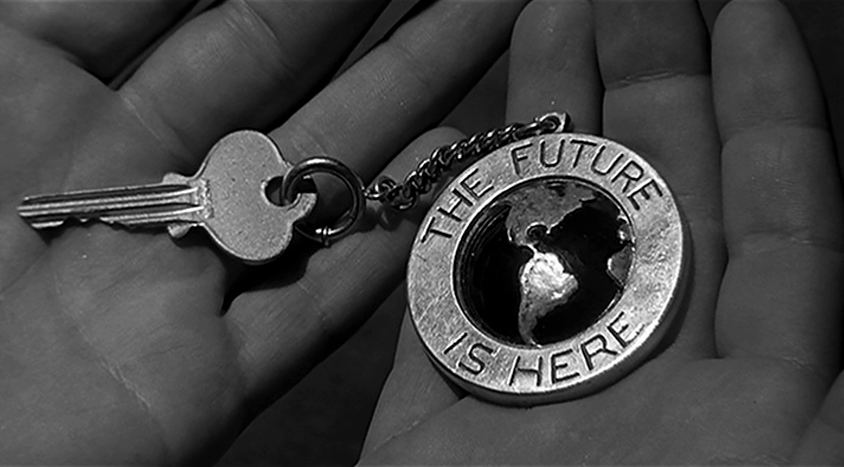
* She and McCarthy both turned up in the Larry Cohen-created series The Invaders.
<<Previous Page 1 2 3 4 5 6 Next Page>>
home about contact us featured writings years in review film productions
All rights reserved The Pink Smoke © 2011